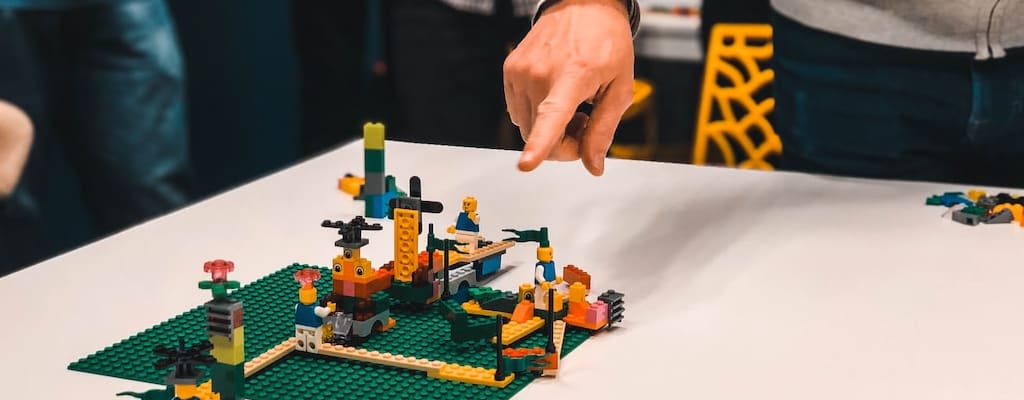play the angles: Idiom Meaning and Origin
What does ‘play the angles’ mean?
The idiom "play the angles" means to use clever or strategic tactics to achieve a desired outcome or advantage.

Idiom Explorer
The idiom "play with fire" means to engage in a dangerous or risky activity, often knowing the potential consequences but still proceeding anyway.
The idiom "play up" means to emphasize or highlight something, often in order to gain attention or elicit a certain reaction. It can also refer to exaggerating or overplaying a situation or a person's abilities.
"Play to win" is an idiom that means to engage in a situation or activity with the intention of achieving victory or success, rather than just participating or going through the motions. It emphasizes the importance of being competitive and putting forth one's best effort to achieve a specific goal or outcome.
The idiom "play to the gallery" means to behave or perform in a way that is intended to gain the favor, support, or applause of the audience or the general public, often without regard for substance or sincerity.
The idiom "play the victim card" means to intentionally act like a victim in order to gain sympathy or to avoid taking responsibility for one's actions.
The idiom "play the race card" refers to the act of using one's race as a means to gain advantage in a situation or to deflect criticism by accusing others of racism.
The idiom "play the man and not the ball" means to focus on attacking or criticizing someone personally instead of addressing the issue at hand. It implies a diversion from the main point of the argument and resorting to personal attacks instead.
The idiom *play the hand one is dealt* means to make the best out of a situation or circumstances that one cannot control.
The idiom "play the gender card" means to use one's gender as a way to gain advantage or manipulate a situation, typically in an unfair or strategic manner.
The idiom "play the fool" means to act silly or foolish, often for amusement or as a way to hide one's true thoughts or intentions.
Mastery Unveiled.
The idiom "play the angles" is a commonly used expression in both everyday conversation and professional domains. It can be traced back to the early 20th century. The precise origin of this phrase is unclear, but it is believed to come from the world of billiards or pool. In billiards, players strategically use angles to their advantage, and "playing the angles" refers to calculating the trajectory of the cue ball and the target ball to maximize success.
When used metaphorically, "play the angles" means to approach situations with a keen sense of strategy and foresight. It involves considering all potential outcomes and leveraging angles of advantage. This concept is applicable in various aspects of life, decision-making, and problem-solving. Whether it be in business negotiations, sports competitions, or everyday interactions, the ability to "play the angles" is associated with thinking ahead and making calculated moves.
One notable aspect of this idiom is its versatility. Although it originated from billiards, it has evolved to encompass a wide range of scenarios, reflecting the adaptability and creativity of the English language. This versatility has allowed the idiom to find its place in fields like journalism, finance, and political discourse.
Furthermore, "play the angles" conveys strategic thinking and a level of shrewdness in navigating complex situations. It suggests a willingness to consider non-traditional approaches and explore unconventional paths. This characteristic is particularly valuable in competitive environments, where finding unique solutions and gaining an edge can make a substantial difference.
In addition to "play the angles," there are two related idioms that are worth mentioning: "play politics" and "play games". These idioms share a common theme of strategic maneuvering and calculated actions.
The idiom "play politics" refers to the act of engaging in manipulative tactics to gain advantage in a political or social context. It implies that individuals are using their skills of persuasion, networking, and strategic thinking to further their own interests or agendas within a political system or organization.
Similarly, the idiom "play games" refers to engaging in manipulative behavior or tactics for personal gain. It can be used to describe individuals who employ deceitful strategies, mind games, or clever maneuvers to achieve their desired outcomes, often at the expense of others.
While these idioms have distinct meanings, they share a common thread with "play the angles" in their emphasis on strategic thinking, calculated actions, and leveraging advantage. They all involve a level of shrewdness and a willingness to approach situations with a keen sense of strategy and foresight.
The idiom "play the angles" originated from the world of billiards and has metaphorically expanded to encompass strategic thinking and calculated actions in various aspects of life. It is a versatile idiom that reflects the adaptability and creativity of the English language. When used in conjunction with the idioms "play politics" and "play games," the common theme of strategic maneuvering and calculated actions is further emphasized. These idioms highlight the importance of thinking ahead and leveraging advantage in order to achieve desired outcomes.
Example usage
Examples of how the idiom play the angles can be used in a sentence:
- He always manages to play the angles and come out on top in negotiations.
- The detective had to play the angles in order to solve the complex murder case.
- The basketball player skillfully played the angles to make a difficult shot from behind the three-point line.
The idiom play the angles is often used to refer to someone taking advantage of a situation by using clever tactics or strategies. It can be used in various contexts such as negotiations, problem-solving, or sports.
More "Strategy" idioms



